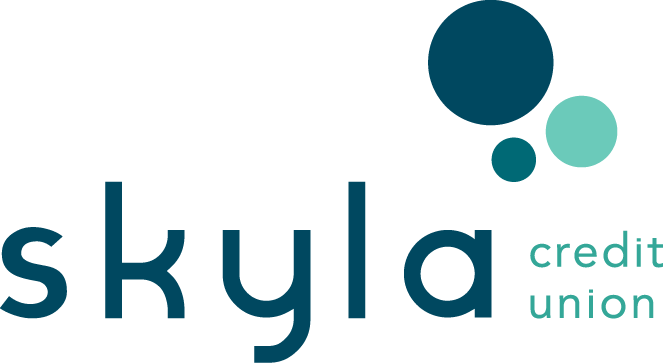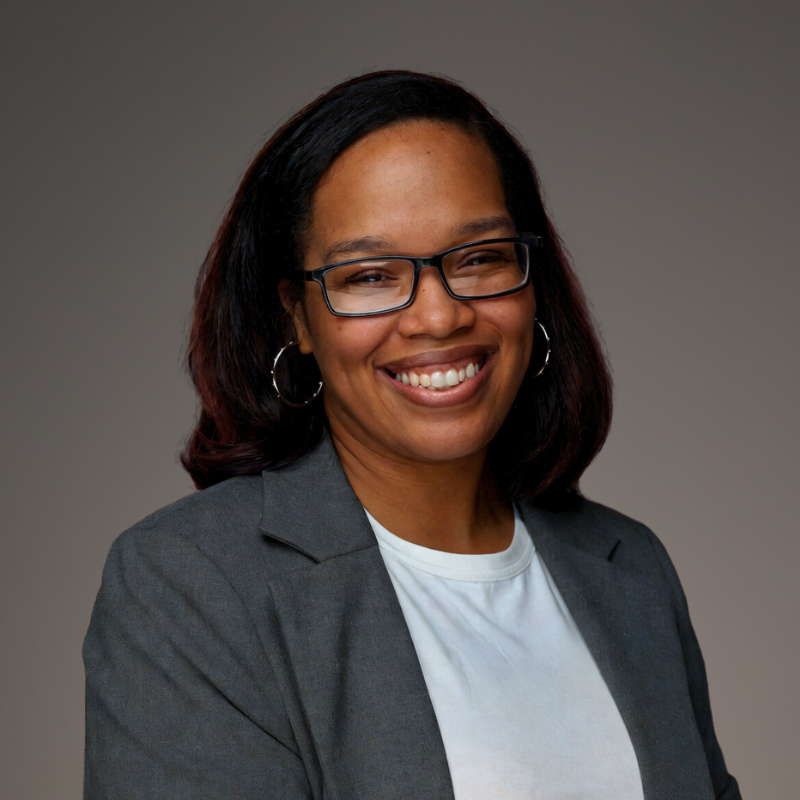Secured vs. Unsecured Credit Cards: What’s the Difference?
.png)
Selecting a credit card isn’t always easy. There are plenty of cards out there provided by tons of different lenders, so it’s easy to ask yourself “Which credit card is right for me?!”
Before you make that decision, it’s important to understand credit cards fall into 2 different buckets - secured and unsecured.
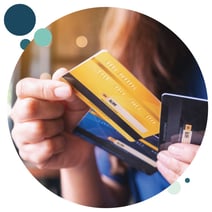
Between unsecured and secured credit cards, one has higher approval odds even if you have a low credit score, and the other offers lower interest rates with great reward perks. Can you tell which one offers which? Luckily, you won’t have to guess!
Since I’ve had my fair share of experience with credit cards, and I’ll share the key differences between the two and what to prepare for so you can determine which card is right for you.
here's what we'll cover
|
 what is a secured credit card?
what is a secured credit card?
Secured credit cards operate the same as regular credit cards but are backed by collateral. This means you need to make a security deposit with cash to open the credit card account and the lender holds on to that deposit.
The deposit requirement normally ranges from $200 - $300, but it may be more depending on the lender. Typically, the amount you deposit to open the credit card account is equal to the credit limit the lender will issue you to use the card. If the security deposit was $250, then your credit limit is $250. If you ever want to increase the credit limit, then you’ll need to give the lender more cash to allow more spending power.
QUICK TIP: At Skyla, our Platinum Secured credit card has a flexible credit limit up to $25,000. Check it out here> |
Secured credit cards are great for individuals looking to establish or re-establish their credit history and build their credit score. For first-time credit card users, this type of card is also referred to as a “starter credit card” since you're getting access to the credit system where you can begin building your credit history. Psst... lenders will often offer student credit cards as secured cards because they are likely the ones to not have a credit history and are the perfect beginners!
If you're interested in a secured credit card, make sure you use the credit card responsibly to build a positive credit history. Responsibility includes:
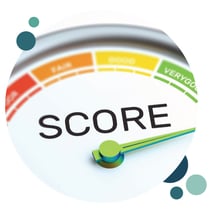
- Paying your monthly bill on time: Missed or late payments can have a major negative impact on your score. Lenders report your account activity to the credit bureau. A 30-day late payment could decrease your score by 60 points.
- Keep your credit card balance low: On revolving credit, such as a credit card, make sure to keep your balance low. You should also try to keep your utilization under 30%.
These are just a few things you should continuously do with your credit card to build or re-build and maintain a positive credit report. What you do with the credit card and how you make payments will reflect on your credit report. Here's a full look at how to improve and maintain your credit.
Do secured credit cards have fees?
Even though the security deposit equals the loan amount on the secured card, if you fail to make a payment beyond your lender's grace period, you will be charged a fee.
Depending on the lender, the fee might be taken out of your security deposit. Other lenders may charge you a separate fee outside of the security deposit. If this credit card is your card of choice, make sure you ask the lender questions about fees and how it’s applied.
At all costs, avoid missing a payment because the credit card issuer reports account information to the major credit bureaus each month. That positive monthly payment report can help you improve your credit score.
The pros and cons of a secured credit card
advantages
- Helps you establish (or re-establish) credit
- Higher approval odds with poor credit. ..remember, paying a deposit shifts the risk away from the lender so you have better chances of getting the card.
- Improves your credit score
- There’s an opportunity to earn rewards (depending on the credit card issuer and the credit card)
QUICK TIP: One of the many advantages of secured cards is that when acquired from financial institutions like Skyla, they often provide more favorable interest rates in comparison to unsecured cards. By offering cash collateral, you significantly enhance your likelihood of securing a better rate from the financial institution.
|
disadvantages
- You need a security deposit meaning you have to pay to get the card and need to have the money upfront.
- Depending on the financial institution, you may pay a higher interest rate and annual fees.
- There’s typically a lower credit card limit compared to unsecured credit cards.
- If not used responsibly, your credit score can be damaged
 what is an unsecured credit card?
what is an unsecured credit card?
An unsecured credit card does not require a security deposit or any collateral to open and get approved. Yes - it's safe to use despite the name but, this is a regular credit card where the lender only has your word that you’ll repay what you charge to the credit card and the fees and interest that accrue.
Since the lender only has your word, this makes it riskier for the lender to lend to you. When it's riskier, the lender has stronger requirements for the prospective borrower such as a better credit history and scoring, a verifiable source of income, and more. Even though an unsecured credit card has more or stronger requirements than a secured card, they still operate the same. For any purchase, you charge to the card you'll have to repay that amount on top of the interest and any other fees that may be associated with the charge. Psst... the same goes for a secured credit card.
The cool thing about unsecured credit cards is you get opportunities to use earn rewards and perks like cash back or getting a discounted rate travel, gas stations, restaurants, or more.
 do unsecured credit cards have fees?
do unsecured credit cards have fees?
Both credit cards come with fees such as advance fees or cash withdrawal fees, balance transfer fees, late payment or overdraft fees, and more. The fees between the credit cards may be different but it always helps to have a plan in place to repay your monthly or overall balance. You can use our budgeting plan and learn how to pay down debt if you ever need tips.
pros and cons of an unsecured credit card
advantages
- Security deposit is not a requirement
- Lenders may offer higher credit limits
- Depending on the financial institution, a lower interest rate is offered compared to a secured credit card.
- Better rewards and perks than secured credit card
disadvantages
- You need to have a good credit score and history to qualify
- If not used responsibly, your credit score can be damaged
 is a secured or unsecured credit card better for my credit?
is a secured or unsecured credit card better for my credit?
Knowing where you are with your credit score and history can help determine which credit card is best. If you have a lower score or need to re-establish credit, you may be better off with getting a secured credit card since there’s less of a risk and lower standards. Many lenders require you to have a strong credit history when applying for their unsecured credit card. If you’re not there yet, get a secured credit card first and then graduate over to an unsecured credit card when your credit has improved.
Once you have the card, a secured and unsecured credit card can affect you and your credit score the same way. If you miss a payment, you must pay a late fee, and your credit score is impacted. Miss payments consecutively and you’ll risk your account going into collections where it’ll close, and your credit score is significantly impacted.
When getting either one of these credit cards, make sure you have a budgeting plan or a debt paydown plan in place so you can keep your spending habits in check! Here are tips to help you track your credit card spending.
 can i switch from a secured credit card to an unsecured credit card?
can i switch from a secured credit card to an unsecured credit card?
Many borrowers get a secured credit card to establish a strong credit history and then later transition over to an unsecured credit card to enjoy more purchasing power with a higher credit limit to cover personal expenses end enjoy more rewards and perks.
Some lenders automatically review your credit card account to see if you qualify to transition over to an unsecured credit card. Transitioning credit cards with the same lender works in your favor for your credit score since you’re keeping your account open.
With other lenders, you may have to contact them yourself and let them know that you’re ready to graduate to an unsecured card.
QUICK TIP: Transition from secured to unsecured credit card once your credit improves, exhibited responsible borrowing behavior consistently such as paid off your balance in advance or on time and you’ve kept your credit card balance low. (It's best to use 30% or less of your available credit.) |
 do i have to close the secured credit card account before i apply for an unsecured credit card?
do i have to close the secured credit card account before i apply for an unsecured credit card?
Excellent question! If you're switching or graduating from secured to unsecured - more than likely your secured account would close and a new unsecured account would open since the two cards are coded differently. If you're switching lenders, make sure you pay off the remaining balance on the secured card, get your security deposit back, and close the account with the existing lender so you don’t have too many credit card lines open.
Ideally, you shouldn't have to keep a secured credit card open for more than 6 months to a year. That timeframe is enough to help increase your credit score and establish a credit history. Psst... just as long as you keep the secured credit card balance low, use it responsibly, and pay on or before your due dates.
what's next?
Phew – that was a lot! Now that you’re an expert on the difference between secured and unsecured credit cards, do you know when’s the best time to apply for a credit card? We’ve outlined the best time to apply and when not to apply here:

Already know you’re ready for a card? Skyla offers a variety of cards including a secured and rewards option.
As Content Strategist behind the Learning & Guidance Center, Yanna loves showing just how doable finance can be. Whether it’s simple tips, step-by-step guides, or comparison charts, she’s passionate about helping readers take charge and reach financial freedom with confidence
more resources for your credit card journey
How Should I Track My Credit Card Spending?
Tracking credit card expenses can be tricky when ensuring everything adds up correctly. Here’s how to track and stay on track with your expenses, so you don’t miss a thing when repaying your lender.
11 min. read
How to Properly Use Revolving Credit
A revolving credit account can be rewarding, but the interest and other fees that come with it aren’t. Here’s how you can avoid that and properly use revolving credit.
11 min. read
 Debit vs. Credit Cards
Debit vs. Credit Cards
Don't know the difference? Here's what you need to know to make an informed decision.
 Credit Cards vs. Lines of Credit
Credit Cards vs. Lines of Credit
Confused between the two? Here's a closer look at the difference.
 Secured vs Unsecured Credit Cards
Secured vs Unsecured Credit Cards
Knowing the difference could help you decide which is best for your financial needs. Here's what you should know.
